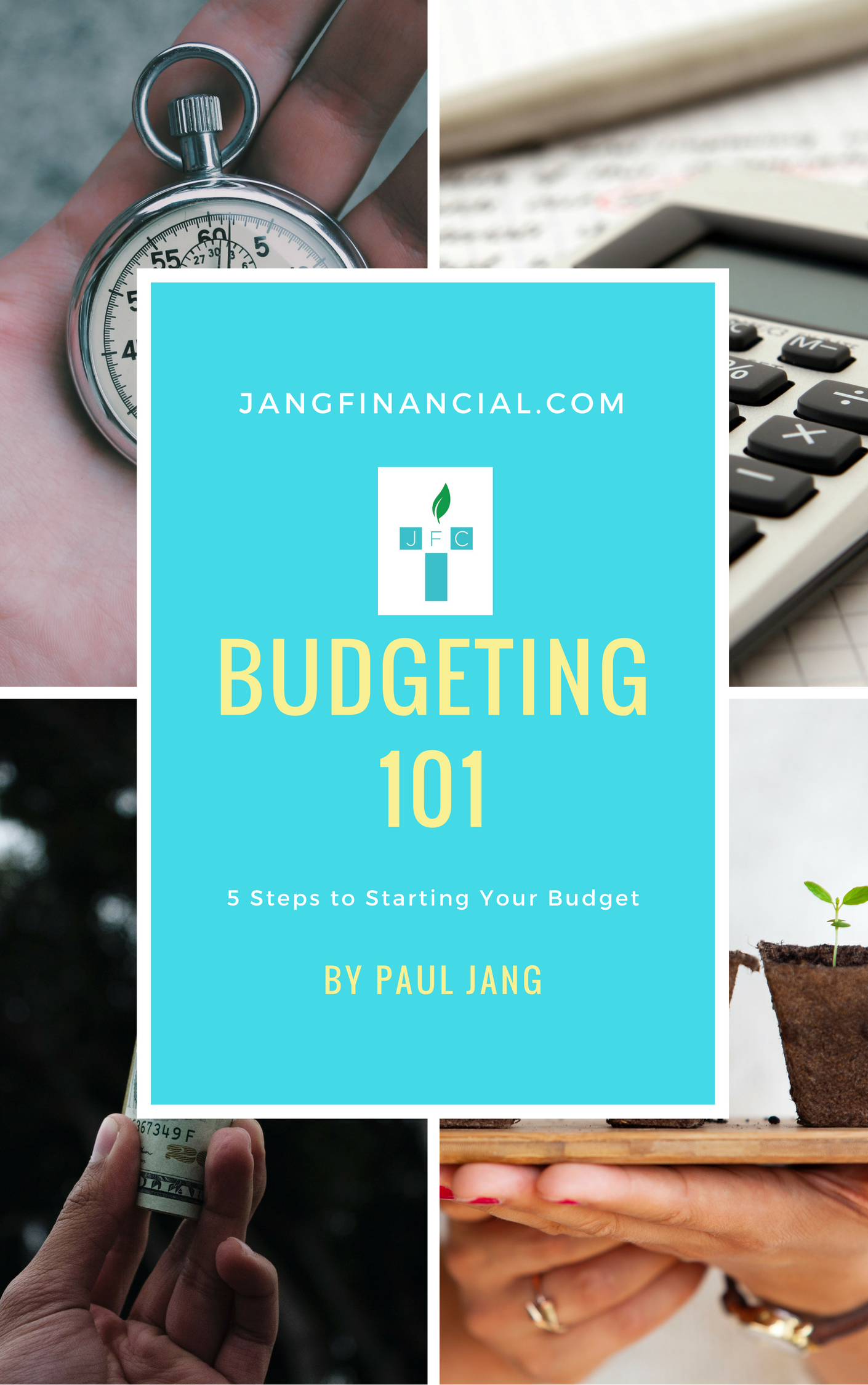A Steward’s Guide to Starting a Budget Part 2: Tracking Expenses by Category
/Sam’s Financial Situation
Sam spends close to 40 percent of his net income on his housing. He has a $400 monthly payment on his car. He goes out to eat a lot but doesn’t know how much he actually spends. He enjoys his daily drink from Starbucks along with something to munch on. He has about $60K in school loans and another $40K on credit card debt. He has no savings and lives paycheck to paycheck. He wants to contribute something to his retirement but hasn’t taken advantage of the matching his company gives. He wants to be generous to his church and other causes he values but never seems to have anything left at the end of the month to give generously. Does Sam sound like you? It doesn’t have to stay that way.
Your Budget Reflects Your Goals and Values
Your budget, or your cash-flow plan, really is a reflection of your values and goals in life. Your budget spells out what you have thought and prayed about, what you have decided prayerfully is valuable and thus important enough to pursue. Instead of letting money happen to you like most of us in life, what if we begin to manage the financial resources God’s way by prayerfully discerning how we believe God wants us to manage it at our current season of life?
Tracking Your Expenses by Category
Once you have tracked your expenses for 30 days, you have something to work with on your budget. This is not supposed to be perfect. We are just trying to have something concrete to work with. Also accept the fact that your budget, or your cash-flow plan, will be a work in progress. It will take good 3-6 months to get a good handle on it, and it will change as your season of life changes.
With your 30 days of tracked expenses, now you are going to go through each purchase and categorize each one. The following percentages are general guidelines for those who manage their finances well. This is not an exact science but a general one. Since personal finance is personal, what is important to you is what matters. As you are doing a zero-based budget, you have to make sure to keep this basic stewardship principle in mind: make sure all of your expenses are accounted for.
People who manage their finances well generally adhere to the following recommended percentages of expenses:
· 10-15% on charitable gifts,
· 10-15% on saving,
· 25-35% on housing,
· 5-10% on utilities,
· 5-15% on food,
· 10-15% on transportation,
· 2-7% on clothing,
· 5-10% on medical/health,
· 10-25% on insurance,
· 5-10% on personal,
· 5-10% on recreation,
· 5-10% on debts (for those who have any).
If you paid attention to the percentages, just by adding the lowest percentages, it will come up to 97%. Keep in mind, that the total must add up to 100%. So, if one particular category is a bit higher, then other categories will need to be adjusted so that the total is still 100%. This is basic arithmetic but it’s tough because we don’t live by simple math. Money is emotional. (We will deal with the emotional component of money later on.)
Spend Proportionally and Intentionally
Those who manage well always think with two principles in mind: think in proportion and stay intentional with your priorities.
Whether you make $50K per year or $50K per month, it is imperative that you always think in terms of proportion. If you want to manage well, make sure you are not too far from these ratios. Now, if you want to be more aggressive with a particular financial goal, then you can plan to sacrifice in certain areas of your life temporarily.
Considering that personal finance is personal, and thus really between you (your spouse if you are married) and God, spend in areas that matter to you. If a particular category is just really important to you in the current season of life and you have peace with God about it, no one can tell you that it’s wrong. As long as you adjust your expenses in other categories, it’s okay. Just make sure how you spend reflects your real priorities in life intentionally.
Watch Out!
Two categories that consume the largest proportion of our expenses are our housing and transportation costs. Keeping these costs down is always an important component to remember. If you try to cut your expenses in categories where you spend significantly less but are over committing on your housing and car, it will be very difficult to win with finances.
So here is the scary yet necessary step in determining your financial position. How are you actually spending? You can’t get to a particular financial destination if you don’t know where you are right now. So even if the prospect of finding our your actual spending pattern seems scary, be strong and courageous. Just do it.
Pay Attention!
Pay special attention to the following categories as the vast majority of people I serve tend to struggle in the following areas:
1) Housing,
2) Transportation,
3) Dining out (grocery is rarely a problem for most, it’s usually eating out that is the problem),
4) Clothing,
5) Electronics/technology (under personal category),
6) Vacation or recreational outing.
As you categorize your expense by category, consider your overall expense ratio in light of the given ratio guideline. How do you fare? Which category is reasonable? Out of control?
Here, it might be a good idea to begin praying and identifying your needs versus wants to begin that step of controlling your spending.
Are you ready to get started? Contact me at paul@jangfinancial.com if you want to help disciple your congregation as God-honoring stewards from a biblical perspective, or if you yourself want to grow as a steward seeking to practically manage the finances better to hear from our Lord upon his return, “Well done, good and faithful servant. You have been faithful over a little; I will set you over much. Enter into the joy of your master.” (Matthew 25:21, 23)
Questions to Ponder:
1. As you examine your actual sum of expenses by categories, are your desired priorities and values as you have prayed reflected in the ways you spend?
2. What categories of expenses do you feel called to reduce? To increase?
3. How is your prayer life connected with your spending life?
Paul Jang
Pastor | Personal Financial Coach to Individuals & Financial Stewardship Ministry Consultant for Churches
*If you want to automatically receive these weekly blogs, sign up for a free budgeting e-book at www.jangfinancial.com.



